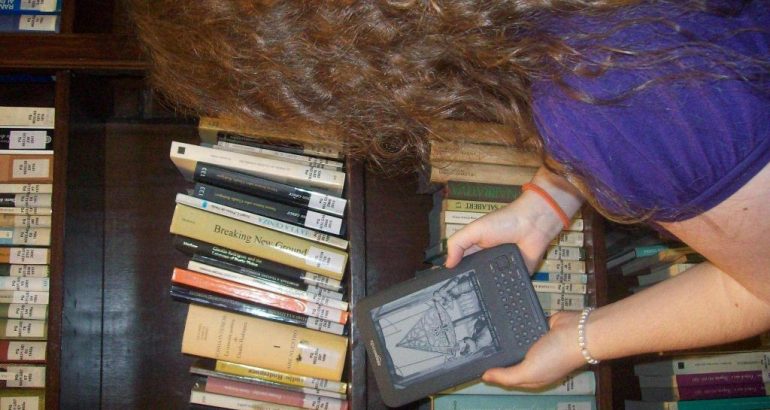
Resultados del proyecto “Global E-reader Program” de préstamo de dispositivos de lectura en la Biblioteca del Instituto Internacional
La Biblioteca del Instituto Internacional en colaboración con la Embajada de Estados Unidos en Madrid ha participado como centro piloto del “Global E-reader Program” del 15 de junio al 15 de noviembre.
Para ello ha puesto a disposición de un grupo reducido de usuarios (11 personas en total) dos dispositivos de lectura de libros electrónicos con los que es posible leer en pantalla 59 clásicos en inglés precargados en formato digital.
El préstamo de dichos lectores de libros electrónicos ha requerido la conformidad y firma de cada participante en cuanto a lo siguiente:
La duración del préstamo tenía que ser de 15 días máximo no renovables siguiendo el orden de reserva para la asignación de tiempos.
Era necesario contestar un cuestionario de valoración de la experiencia de uso que se enviará a la Embajada como resultado del proyecto.
El prestatario se hacía responsable del kindle y se comprometía a no instalar ni descargar nada más que la colección preinstalada.
El modelo de lector es el Kindle (en su tercera edición) de la empresa Amazon. Junto con el dispositivo se incluía una guía de uso rápido que podía servir de orientación pero también desde la biblioteca se podía asesorar sobre su funcionamiento.
Con la aceptación de las condiciones de participación se entregaba un Cuestionario Kindle IIE que incluía una explicación de presentación, la lista de títulos disponibles y el cuestionario.
Los resultados de las encuestas de la evaluación de la experiencia se han elaborado combinandolos con la variable de género (masculino/femenino). RESULTADOS DEL PROYECTO KINDLE IIE
La valoración general del proyecto ha sido muy positiva por parte de los usuarios implicados. Como biblioteca el balance nos lleva a considerar más apropiados los prestamos digitales desde plataformas de descarga legal de contenidos que mediante el prestamo de los propios dispositivos de lectura portátil precargados.
Desde la Biblioteca nos preocupaba que una vez prestados los e-readers pudieran no devolverse o sufrir daños. Para intentar evitarlo se decidió ofrecerlos a los usuarios seleccionados que llevaran bastante tiempo vinculados y que por su comportamiento hasta el momento hubiera demostrado ser usuarios responsables. Pudimos confirmar que esta duda sobre el riesgo que implicaba prestarlo a quienes estaban menos vinculados era razonable.
La posibilidad de ofrecer los dispositivos con contenidos preseleccionados ha evitado al usuario final tener que buscar, descargar o pagar por obtenerlos pero tiene a su vez la desventaja de que pueden no ser contenidos suficientemente interesantes o apropiados para quien lo usa.
Dado que todos eran en libros en inglés ha sido un aliciente para los usuarios que eran nativos o estaban aprendiendo el idioma como segunda lengua pero a su vez un obstaculo si su nivel de lectura no correspondía con el de los contenidos (la mayoría requerían un nivel avanzado y eran para adultos).
Creemos que se ha valorado positivamente el tiempo dado para el prestamo considerando que se trataba de problarlo pero en algunos casos los 15 días no han dado para leer la obra completa o ha condicionado la elección prefiriendose relatos o textos de consulta en lugar de novelas o biografías más largas.
Nuestro agradecimiento a la Embajada de los Estados Unidos en Madrid por contar con nuestra Biblioteca para participar de esta iniciativa y a Maria Jesús Ramos Vilela, alumna de la Universidad Carlos III, por su colaboración en el proyecto.
Nuria Segui y Ana Alonso




